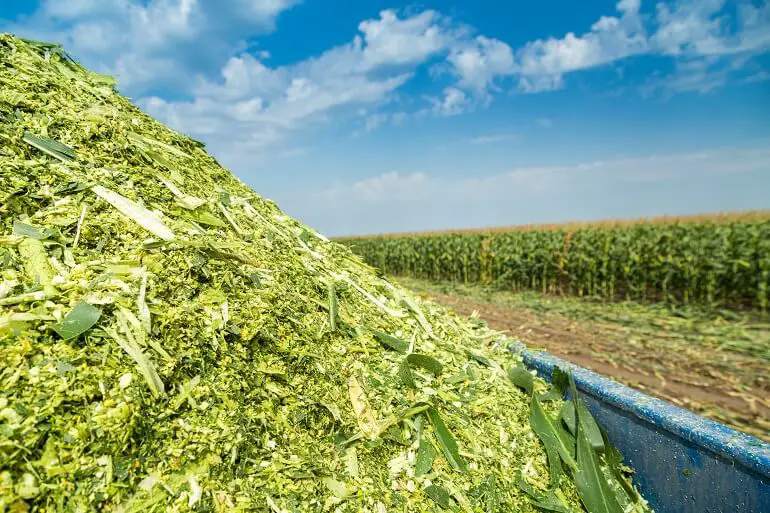In recent years, there has been a significant increase in Kenyan farmers who have opted to cultivate maize specifically for use as animal feed.
This trend is largely due to the widespread availability of information about the nutritional benefits of maize for livestock and the relative ease with which it can be grown and processed into silage.
The Process of Making Silage
To make silage, farmers store crops with high moisture content in a silo, which ferments to create feed for their animals.
They usually use grass, corn, and maize, which they chop into small pieces before storing in silos, bales, and bags.
Silos and bunkers are good for large quantities, while bags and bales are better for smaller amounts that need to be transported.
Here are the top two maize varieties that are ideal for producing silage in Kenya:
1. Yellow Maize
A considerable number of farmers cultivate conventional maize for silage production.
However, opting for yellow maize could be a more profitable and effective choice as it offers numerous benefits.
Yellow maize possesses more foliage, which is a valuable attribute for silage production, and it also contains higher amounts of crude protein than ordinary maize.
The foliage of yellow maize is critical for silage production as it enhances the digestibility and nutritional value of the feed.
Moreover, the higher crude protein content of yellow maize makes it an excellent source of protein for livestock, promoting their growth and overall health.
Therefore, farmers looking to improve the quality of their silage and enhance the nutrition of their livestock should consider switching to yellow maize.
2. H9401
According to Kenya Seed Company LTD, the H9401 maize variety is considered the best option for silage production.
This variety offers several advantages, including higher yield potential, making it a good choice for farmers.
Additionally, H9401 maize has excellent storage qualities, ensuring the silage remains fresh and high-quality for an extended period.
Furthermore, H9401 maize resists several diseases such as rust, ear rot, lodging, stem, and leaf blight.
This resistance helps to minimize the risk of crop loss and ensures that the yield is not affected by these diseases.
As a result, farmers can save on costs associated with disease control and management practices.
Conclusion
Although wide maize varieties are available throughout the country, they may not be the best option for producing high-quality silage, resulting in decreased yields and lower feed quality.
As a result, farmers may need to resort to using less suitable maize varieties, which may negatively impact their ability to produce enough forage to meet their needs.
The lack of appropriate forage maize varieties underscores the need for continued research and development to create maize strains that are better suited for forage production in Kenya.

